Successful project delivery depends on more than good intentions or a solid plan. Teams need a shared, proven way of working. Without a common framework, even strong teams can struggle with misalignment, inconsistent processes, and unclear ownership.
Project management certifications provide that shared foundation. They equip professionals with recognized methodologies, practical tools, and a common language for execution. In this guide, we break down the top project management certifications, who they’re best for, and how they can support career growth and how those credentials can be applied in real-world project environments
Why you need a project management certification
Project management certifications validate your expertise and signal your commitment to professional excellence. They show employers that you understand industry-standard frameworks, best practices, and methodologies — and that you can apply them to real-world projects across teams, tools, and organizational contexts.
As projects grow more complex, organizations increasingly prioritize certified project managers because they bring structure, consistency, and clarity to execution. When certification knowledge is paired with a robust work management platform, those best practices can be implemented at scale, turning theory into measurable outcomes leaders can see and trust.
Beyond credibility, certifications deliver tangible professional and organizational benefits:
- Reliable ROI and salary potential: You can calculate ROI by comparing certification costs against salary increases and new opportunities, but a PMI study shows that 60% of professionals reported an increase in compensation with PMP certification.
- Career advancement opportunities: Aside from gaining more on-the-job experience, project management certifications allow you to build skills that can open more doors within your organization or at new ones.
- Global recognition: Many of the certifications on the list below are recognized globally, meaning you can use them to apply for jobs all over the world without worrying about taking new, region-specific certifications.
- Deepen project knowledge and skills: Getting certifications in areas you may be less familiar with, like Agile or scrum methodologies, is a good way to develop project management skills and expand your knowledge so you can tackle more complex projects.
- Improved job security: As you move up the career ladder and gather more project management certifications and knowledge, you’ll become a more valuable team member at your organization, providing more job security even in constantly changing environments.
- Stronger project outcomes: Aside from personal benefits, your entire team and organization stand to benefit from certifications as they can help you work more efficiently and teach your practical skills to improve the way you manage teams and projects.
When a project management certification is worth the investment
While project management certifications offer clear benefits, the right credential — and the right timing — depends on your career stage, experience level, and long-term career goals. Entry-level certifications help you break into the field, while advanced credentials are designed to support leadership, specialization, and executive growth.
Understanding when to invest — and which level makes sense — ensures you get the maximum return from your time, effort, and financial commitment. This table summarizes how certification levels typically differ by career stage, time commitment, and cost.
| Certification level | Best for | Typical prep time | Typical cost range |
|---|---|---|---|
| Entry-level | Breaking into project management or changing careers | 1–3 months | $200–$500 |
| Mid-level | PMs with hands-on experience seeking advancement | 3–6 months | $400–$1,200 |
| Advanced | Senior PMs and leaders managing complex programs | 6–12 months | $1,000–$2,500 |
You should consider investing in a project management certification at strategic points in your career. If you’re looking to break into project management or make a career change, an entry-level certification is often the right starting point. For professionals with a few years of experience, mid-level or advanced certifications can support the next stage of growth — from leading more complex projects to stepping into formal leadership roles.
15 project management certifications to advance your career
These certifications represent the most recognized and valuable credentials in project management today. They’re organized from the most widely accepted to specialized options, covering entry-level through expert credentials that can transform your career prospects.
Each project manager certification offers unique advantages depending on your industry, experience level, and career aspirations. The table below gives you a quick overview of key points for each certification for a side-by-side overview. For more comprehensive details on each certification, keep reading below.
| Certification | Best for | Level | Cost | Exam |
|---|---|---|---|---|
| Project Management Professional (PMP)® | Established PMs seeking higher salary | Mid-level–Senior | $655 ($405 members) | 180 questions, 230 min |
| Certified Associate in Project Management (CAPM)® | Building foundational knowledge | Entry | $300 ($225 members) | 150 questions, 180 min |
| Certified Project Manager (IAPM) | PM career beginners | Entry | $600 | 120 questions, 80 min |
| PMI Agile Certified Practitioner (PMI-ACP)® | Agile practitioners | Mid-level | $495 ($435 members) | 120 questions, 180 min |
| PRINCE2® Project Management Foundation | UK-based PM professionals | Entry | $1,465–$2,135 | 60 min, multiple-choice |
| PRINCE2® Project Management Practitioner | Next step after PRINCE2 Foundation | Entry | $1,550–$2,545 | 70 questions, 150 min |
| Certified ScrumMaster® (CSM®) | Scrum adoption/Scrum Master role | Entry | Varies significantly | 50 questions, multiple-choice |
| CompTIA Project+ | IT professionals | Entry | $360 | 90 questions, 90 min |
| Program Management Professional (PgMP)® | Managing complex programs | Senior | $1,000 ($800 members) | 170 questions, 240 min |
| Certified Project Director (CPD) | Experienced PM executives | Senior | $100–$280 | 100 questions, 90 min |
| MPM® Master Project Manager™ | Furthering career prospects | Mid-level–Senior | $300 | Multiple-choice |
| Professional in Project Management (PPM) | Practical tools and techniques | Mid-level | $100–$340 | 150 questions, 120 min |
| BVOP Certified Project Manager | Business value-oriented PMs | Mid-level–Senior | $130 | 60 questions, 50 min |
| Google Project Management Certificate | Getting started with AI focus | Entry | $49/month | No final exam (project-based assessments) |
| Certified Agile Project Manager (IAPM) | Agile PMs | Entry–Mid-level | $600 | 120 questions, 80 min |
1. Project Management Professional (PMP)®
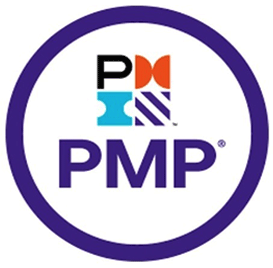
- Cost: $655 ($405 for PMI members)
- Level: Mid-level–Senior (3-5 years of experience)
- Best for: Established project managers who want to increase salary and deepen skills
- Quick fact: PMP-certified project managers report a higher median salary
- Exam: 180 questions, 230 minutes
The Project Management Professional (PMP) from the Project Management Institute (PMI) stands as the gold standard for experienced project managers worldwide. This certification requires 4,500-7,500 hours of project management experience and 35 hours of formal project management education.
PMP certification covers 3 key domains: people, process, and business environment. The exam tests your ability to lead teams, manage stakeholder expectations, and deliver projects that align with organizational strategy.
2. Certified Associate in Project Management (CAPM)®
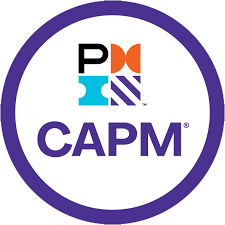
- Cost: $300 ($225 for PMI members)
- Level: Entry
- Best for: Building foundational project management knowledge
- Quick fact: CAPM-certified project managers often report an average salary of $80,000
- Exam: 150 questions, 180 minutes
The Certified Associate in Project Management (CAPM) serves as PMI’s entry-level credential, perfect for professionals with limited project management experience. Requirements include a secondary degree and 23 hours of project management education, making it accessible to career changers and recent graduates.
CAPM provides foundational knowledge in project management principles and serves as a stepping stone to PMP certification. This credential helps you secure your first project management role and demonstrates your commitment to the profession.
3. Certified Project Manager (IAPM)
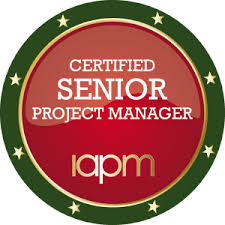
- Cost: $600 (approximation based on citizenship and exchange fees)
- Level: Entry
- Best for: People in primarily European markets who want to begin a career in project management and are looking for a certification
- Quick fact: Unlike other certifications, this is valid for life, so there’s no need for recertification
- Exam: 120 questions, 80 minutes
The International Association of Project Managers (IAPM) offers CPM certification with a focus on practical application and real-world skills. This credential is particularly recognized in European markets and requires basic project management knowledge without extensive experience prerequisites.
CPM emphasizes hands-on competencies and flexible learning approaches. The certification process includes practical assignments and case studies that directly apply to workplace scenarios.
4. PMI Agile Certified Practitioner (PMI-ACP)®
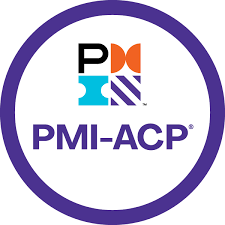
- Cost: $495 ($435 for PMI members)
- Level: Mid-level (2+ years of experience)
- Best for: Agile practitioners who want to apply Agile principles more effectively
- Quick fact: 86% of PMI-ACPs report qualifying for new opportunities
- Exam: 120 questions, 180 minutes
The PMI Agile Certified Practitioner (PMI-ACP) validates expertise in Agile methodologies and practices. This certification requires 2,000 hours of general project experience and 1,500 hours of Agile project experience, plus 21 hours of Agile training.
PMI-ACP covers multiple Agile approaches, including Scrum, Kanban, Lean, and XP. This certification is essential for professionals working in software development, product management, and organizations embracing Agile transformation.
5. PRINCE2® Project Management Foundation
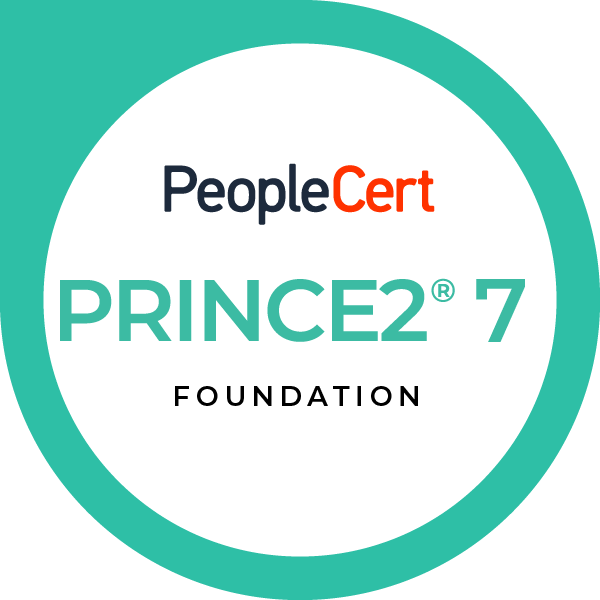
- Cost: $1,465–$2,135
- Level: Entry
- Best for: Current or aspiring UK-based project professionals
- Quick fact: The Foundation exam focuses on recall and understanding of PRINCE2 concepts rather than real-world application
- Exam: 60 minutes, multiple-choice
PRINCE2 Foundation, developed in the UK, provides a structured project management methodology widely adopted in government and IT sectors. This entry-level certification covers PRINCE2 principles, themes, and processes without requiring prior experience.
The certification emphasizes controlled project environments and defined roles and responsibilities. PRINCE2 Foundation serves as a prerequisite for the more advanced PRINCE2 Project Management Practitioner certification.
6. PRINCE2® Project Management Practitioner
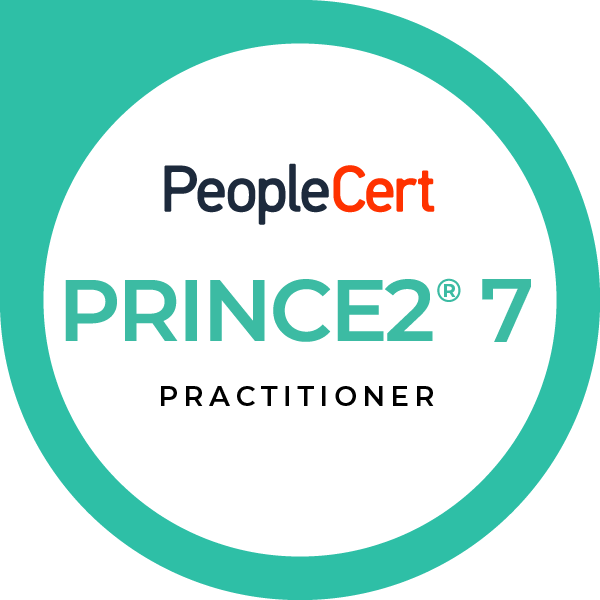
- Cost: $1,550.00 –$2,545.00
- Level: Entry, must have completed PRINCE2 Project Management Foundation exam
- Best for: Project professionals looking for the next step after taking the PRINCE2 foundation course
- Quick fact: The Practitioner exam is scenario-based and evaluates your ability to apply PRINCE2 principles in real project situations
- Exam: 70 questions, 150 minutes
PRINCE2 Practitioner builds on Foundation knowledge, focusing on practical application and real-world implementation. This advanced certification requires candidates to demonstrate their ability to apply PRINCE2 methodology in complex project scenarios.
The Practitioner level emphasizes tailoring PRINCE2 to specific project environments and organizational contexts. This certification is ideal for experienced project managers seeking structured methodology expertise.
7. Certified ScrumMaster® (CSM®)
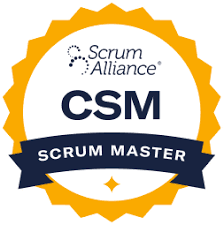
- Cost: Varies significantly depending on trainer and format
- Level: Entry
- Best for: Professionals who want to adopt scrum or serve as a scrum master
- Quick fact: Scrum master certifications are one of the most requested professional certifications
- Exam: 50 questions, multiple-choice
The Certified ScrumMaster (CSM) from Scrum Alliance focuses specifically on Scrum framework implementation and team facilitation — a critical focus given that a majority of project management is communication. This certification requires attendance at a CSM course and passing the certification exam.
CSM emphasizes servant leadership, team coaching, and removing impediments to team productivity. This credential is essential for professionals leading Agile teams in software development and product management environments.
8. CompTIA Project+
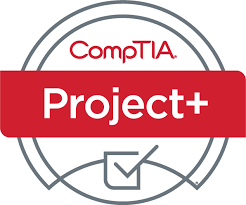
- Cost: $360 (for exam)
- Level: Entry
- Best for: IT professionals building project management skills and mastering the basics
- Quick fact: Project managers with this certification can earn an estimated salary between $75,000 – $135,000
- Exam: 90 questions, 90 minutes
CompTIA Project+ offers a vendor-neutral project management cert ideal for IT professionals. This credential covers essential project management concepts without requiring extensive experience, making it accessible to technical professionals transitioning into project management.
The certification emphasizes IT project scenarios while covering universal project management principles. CompTIA Project+ provides solid foundation knowledge for technology-focused project managers.
9. Program Management Professional (PgMP)®
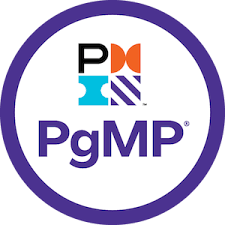
- Cost: $1,000 ($800 for PMI members)
- Level: Senior (4–7 years experience)
- Best for: Professionals looking to advance their career by navigating more complex projects
- Quick fact: 23% of surveyed PgMP holders reported a salary increase after certification
- Exam: 170 questions, 240 minutes
The Program Management Professional (PgMP) from PMI targets senior professionals managing multiple related projects. This advanced certification requires significant experience managing programs and demonstrates strategic leadership capabilities.
PgMP focuses on benefits realization, stakeholder engagement, and program governance. This credential positions you for executive-level roles overseeing complex organizational initiatives.
10. Certified Project Director (CPD)
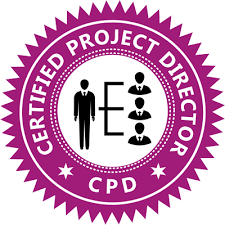
- Cost: ~$100–$280, depending on package
- Level: Senior
- Best for: Experienced project executives who want to go beyond the professional level for more recognition
- Quick fact: The certification is recognized globally as a senior-level credential
- Exam: 100 questions, 90 minutes
This senior-level CPD credential by the Global Association for Quality Management (GAQM) targets professionals leading large-scale, high-stakes projects requiring strategic oversight and executive decision-making. The certification emphasizes leadership, risk management, and organizational alignment.
Certified Project Director validates your ability to manage complex project portfolios and drive organizational transformation through successful project delivery.
11. MPM® Master Project Manager™
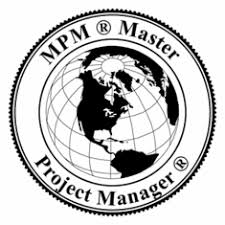
- Cost: ~$300, depending on provider
- Level: Mid-level–Senior (3+ years experience)
- Best for: Ideal for project managers looking to further their professional career and prospects
- Quick fact: MPM certification is often associated with higher compensation at senior levels
- Exam: Multiple-choice
The Master Project Manager (MPM) from the American Academy of Project Management (AAPM) targets executives and senior leaders managing enterprise-level initiatives. This certification combines project management expertise with business strategy and leadership skills.
MPM emphasizes strategic thinking, organizational change management, and executive communication. This credential is designed for professionals seeking C-suite or director-level positions.
12. Professional in Project Management (PPM)
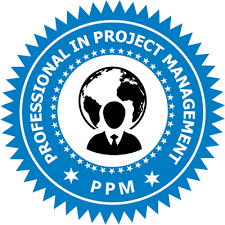
- Cost: ~$100–$340, depending on package
- Level: Mid-level (2+ years of experience)
- Best for: Project professionals looking for more practical guidance, tools, and techniques
- Quick fact: The PPM exam emphasizes situational judgment questions based on real project challenges
- Exam: 150 questions, 120 minutes
The Global Association for Quality Management offers the PPM certification for professionals seeking industry-specific project management expertise. The credential emphasizes quality management principles integrated with project management practices.
This certification is particularly valuable in manufacturing, healthcare, and regulated industries where quality standards are paramount to project success.
13. BVOP Certified Project Manager
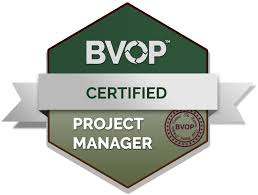
- Cost: $130
- Level: Mid-level–Senior
- Best for: Senior project managers, scrum masters, and agile professionals seeking advanced skills
- Quick fact: BVOP is designed to be accessible and passable for experienced professionals
- Exam: 60 questions, 50 minutes
Business Value-Oriented Project Management (BVOP) certification integrates business value creation with Agile practices and people leadership. This modern approach emphasizes delivering measurable business outcomes through project management.
BVOP focuses on stakeholder value, team empowerment, and adaptive project approaches. This certification appeals to professionals seeking contemporary project management methodologies.
14. Google Project Management Certificate
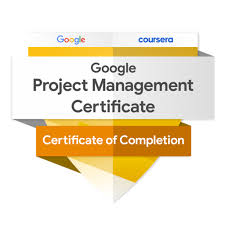
- Cost: $49/month, 7-day free trial
- Level: Entry
- Best for: Anyone looking to get started in project management and learn how to leverage AI in projects
- Quick fact: US-based graduates get access to CareerCircle for personalized coaching, mock interviews, and resume-building tools
- Exam: N/A
The Google Project Management Certificate is a self-paced, fully remote credential issued by Google Career Certificates and completed through online coursework and a capstone project.
Google’s certificate emphasizes digital project management platforms and modern workplace collaboration. This credential is ideal for professionals seeking flexible learning options and practical skills application.
15. Certified Agile Project Manager (IAPM)

- Cost: $600 (approximation based on citizenship and exchange fees)
- Level: Entry–Mid-level
- Best for: People primarily in European markets who want to pursue a career in Agile project management
- Quick fact: Take a free self-test before the exam to get feedback where to improve from the IAPM support team
- Exam: 120 questions, 80 minutes
The International Association of Project Managers offers various certification levels recognized across European markets, including a certification for Agile project management. This certification provides a flexible learning path and practical skill development for Agile projects.
IAPM certifications emphasize real-world application and continuous professional development. The association offers multiple specialization areas to match diverse career paths and industry requirements.
When implementing certification knowledge in practice, monday work management provides the ideal platform to demonstrate your newly acquired skills through customizable workflows, automated processes, and comprehensive project tracking capabilities.
Beginner paths for a project manager certificate
Starting your project management certification journey requires choosing credentials with minimal prerequisites that focus on foundational knowledge and skills. These entry-level certifications provide an essential understanding without demanding extensive work experience.
Most beginner certifications require a secondary degree, basic project management education, and little to no professional experience. This makes them perfect for career changers, recent graduates, and professionals seeking to formalize their project management knowledge.
1. Associate-level requirements
Entry-level certifications typically require an educational background equivalent to a high school diploma or an associate’s degree. Many programs also require 15-35 hours of project management education, which can be completed through online courses, workshops, or formal training programs.
Some certifications allow you to substitute education requirements with relevant work experience. This flexibility accommodates diverse backgrounds and career paths while ensuring candidates possess a fundamental project management understanding.
2. Basic exam preparation tips
Successful certification preparation requires structured study approaches and consistent practice. Create a detailed study timeline that allocates sufficient time for each knowledge area while building in review periods and practice exams.
Effective preparation strategies combine multiple learning approaches to reinforce key concepts and build confidence. Consider these proven methods that help candidates achieve certification success:
- Structured study schedule: Dedicate specific hours daily to certification preparation.
- Practice examinations: Use official practice tests to identify knowledge gaps.
- Study group participation: Collaborate with peers for shared learning and motivation.
- Real-world application: Connect theoretical concepts to workplace scenarios.
With monday work management’s project templates and workflow automations, you can practice certification concepts in real project environments, reinforcing your learning through hands-on application.
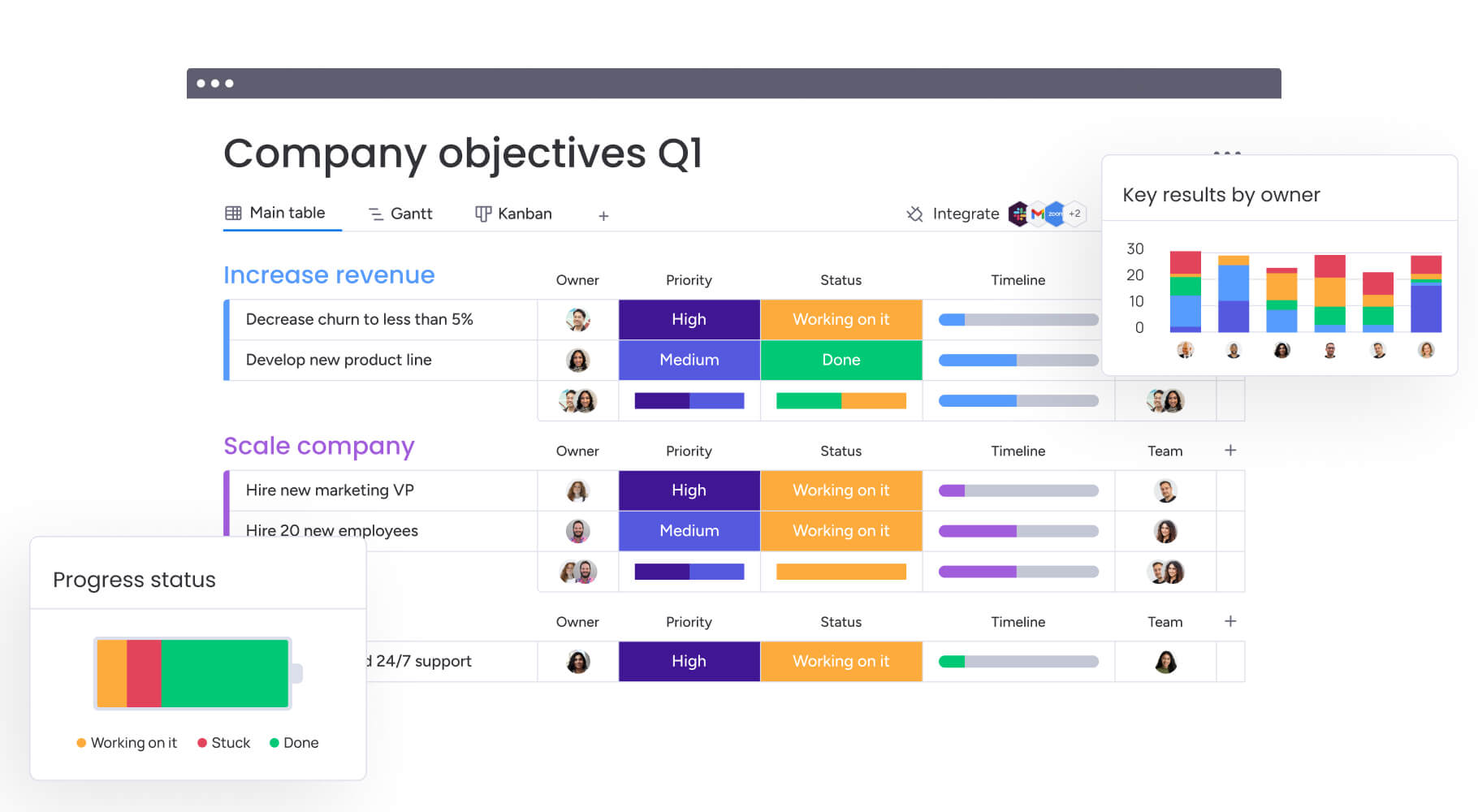
Mid-level paths for a certified project manager
Mid-level certifications target professionals with some project management experience who want to advance to leadership roles and gain formal recognition for their skills. These credentials typically require 2-4 years of documented project experience and more comprehensive preparation.
The investment in mid-level certifications is substantial but often yields significant career advancement opportunities. These credentials position you for project manager, program coordinator, and team leadership roles across various industries.
1. Prerequisites and work experience
Mid-level certifications require documented project management experience, often measured in hours rather than years. PMP certification, for example, requires 4,500-7,500 hours of project management experience depending on your educational background.
Experience documentation must demonstrate your involvement in project initiation, planning, execution, monitoring, and closing phases. Many certification bodies require detailed project descriptions and supervisor verification of your responsibilities and achievements.
2. Typical study resources
Mid-level certification preparation requires comprehensive study materials and structured learning approaches. The Project Management Body of Knowledge (PMBOK) Guide serves as the foundation for PMI certifications, while other credentials have their own authoritative resources.
Recommended study resources include official certification guides, online training courses, instructor-led workshops, and practice examination platforms. Many professionals benefit from combining multiple learning formats to accommodate different learning styles and schedules.
Expert project management certifications for seasoned leaders
Advanced certifications target experienced professionals aiming for director, executive, or specialized consultant roles. These credentials require extensive experience, demonstrated leadership capabilities, and a deep understanding of strategic project management principles.
Expert-level certifications focus on portfolio management, organizational strategy alignment, and complex stakeholder management. They prepare you to lead large-scale transformational initiatives and drive organizational success through project excellence.
1. Advanced curriculum focus
Expert certifications emphasize strategic thinking, business acumen, and organizational leadership rather than tactical project management skills. Curriculum areas include portfolio optimization, benefits realization, stakeholder governance, and change management.
These programs often include case study analysis, peer collaboration, and real-world application projects. The learning experience mirrors executive education programs with an emphasis on critical thinking and strategic decision-making.
2. Leading complex programs
Advanced certifications prepare you to manage multiple interconnected projects, large program portfolios, and enterprise-wide initiatives. You’ll develop skills in resource optimization, risk management across project portfolios, and strategic alignment with organizational objectives.
Expert-level project managers must navigate complex stakeholder environments, manage competing priorities, and deliver measurable business value. These certifications validate your ability to operate at the intersection of project delivery and business strategy.
How to choose the right project management certification online
Choosing the right project management certification isn’t about picking the most popular option — it’s about selecting the credential that aligns with your experience level, career goals, and the roles you want to pursue next. The right certification should support where you are today while positioning you for long-term growth.
Before enrolling, ask yourself these 5 questions:
1. Does this certification align with my career goals?
Consider where you want to be in the next three to five years. Entry-level certifications help you break into project management, while advanced credentials support leadership, specialization, and executive responsibilities.
2. Is the certification recognized in my industry or region?
Not all certifications carry equal weight everywhere. Research job postings in your target industry and location to see which credentials employers consistently value.
3. Do I meet the experience and education requirements?
Some certifications require documented project experience, while others are designed for beginners. Choosing a certification that matches your current background prevents unnecessary delays or rework later.
4. Can I realistically commit the time and cost?
Preparation time, exam fees, renewal requirements, and study materials all factor into the total investment. Make sure the certification fits your schedule and budget — not just your ambitions.
5. Will this credential help me demonstrate real-world capability?
The most valuable certifications don’t just test knowledge. They help you apply frameworks, tools, and best practices in real project environments. Look for programs that strengthen execution, not just theory.
Taking a thoughtful approach ensures your certification investment delivers lasting value — not just a line on your resume.
Maintaining your certification and earning PDUs
Most project management certifications require ongoing maintenance through continuing education and periodic renewal. This ensures certified professionals stay current with evolving best practices, methodologies, and industry standards.
Professional Development Units (PDUs) or equivalent continuing education credits demonstrate your commitment to lifelong learning and professional growth. These requirements typically range from 15 to 60 credits every three years, depending on the certification.
Renewal timeframes
Certification renewal cycles typically span between 3 to 5 years, with specific requirements varying by certification body. Some organizations offer grace periods or alternative renewal pathways for professionals facing unique circumstances.
Plan your renewal activities throughout the certification cycle rather than scrambling near expiration dates. Many professionals integrate PDU earning into their regular professional development activities and conference attendance.
Continuing education credits
PDUs can be earned through various activities, including formal training, conference attendance, volunteer work, and self-directed learning. Many certification bodies offer online platforms to track and submit PDU activities.
Consider how monday work management’s extensive training resources, webinars, and certification programs can contribute to your PDU requirements while enhancing your practical project management capabilities.
Applying certification frameworks in real projects
Project management certifications provide the framework — but real value comes from applying those principles consistently across teams and projects. Work management platforms like monday work management help translate certification knowledge into repeatable workflows, visibility, and accountability, making it easier to scale best practices without relying on manual processes.
Elevate your skills and drive success across teams
Project management certifications provide the foundation for career advancement, higher compensation, and greater professional confidence. These credentials validate your expertise while opening doors to leadership opportunities and strategic roles that shape organizational success.
The most successful certified project managers combine their formal training with powerful digital platforms that enable them to implement best practices at scale. When you pair certification knowledge with monday work management’s comprehensive project management capabilities, you can demonstrate measurable results that justify your investment in professional development.
Try monday work managementFAQs
Is CPM certification more valuable than PMP certification for career advancement?
CPM and PMP certifications serve different purposes and markets, with PMP offering broader global recognition while CPM focuses on practical application with less stringent experience requirements for career advancement.
How can I choose the best project management certification for remote work environments?
Remote work environments benefit most from certifications emphasizing digital collaboration and Agile methodologies, such as PMI-ACP or Google Project Management Certificate, which include virtual team management components.
Where can I find flexible online project management certification programs that fit my schedule?
Many providers offer flexible online certifications including Coursera's Google Project Management Certificate, PMI's self-paced learning options, and IAPM's completely online certification process with flexible scheduling.
How should I add my pm certificate to my resume to maximize impact?
List your pm certificate in both education and skills sections, include the certification date and issuing organization, and highlight specific projects where you applied the methodologies learned through your certification program.
Which project management certifications require continuing education credits for renewal?
PMI certifications including PMP, PgMP, and PMI-ACP require Professional Development Units (PDUs), while Prince2 requires continuing professional development points, and most other major certifications have similar ongoing education requirements.
Do certified project managers actually earn higher salaries than non-certified professionals in similar roles?
Yes, certified project managers typically earn significantly higher salaries, with certification holders earning substantially more on average than their non-certified counterparts according to industry salary surveys and compensation studies.
